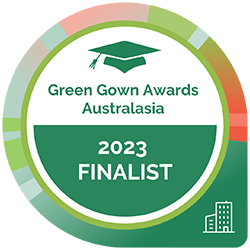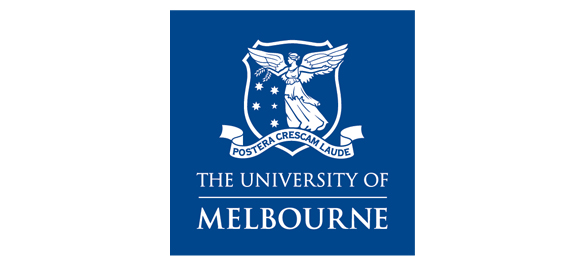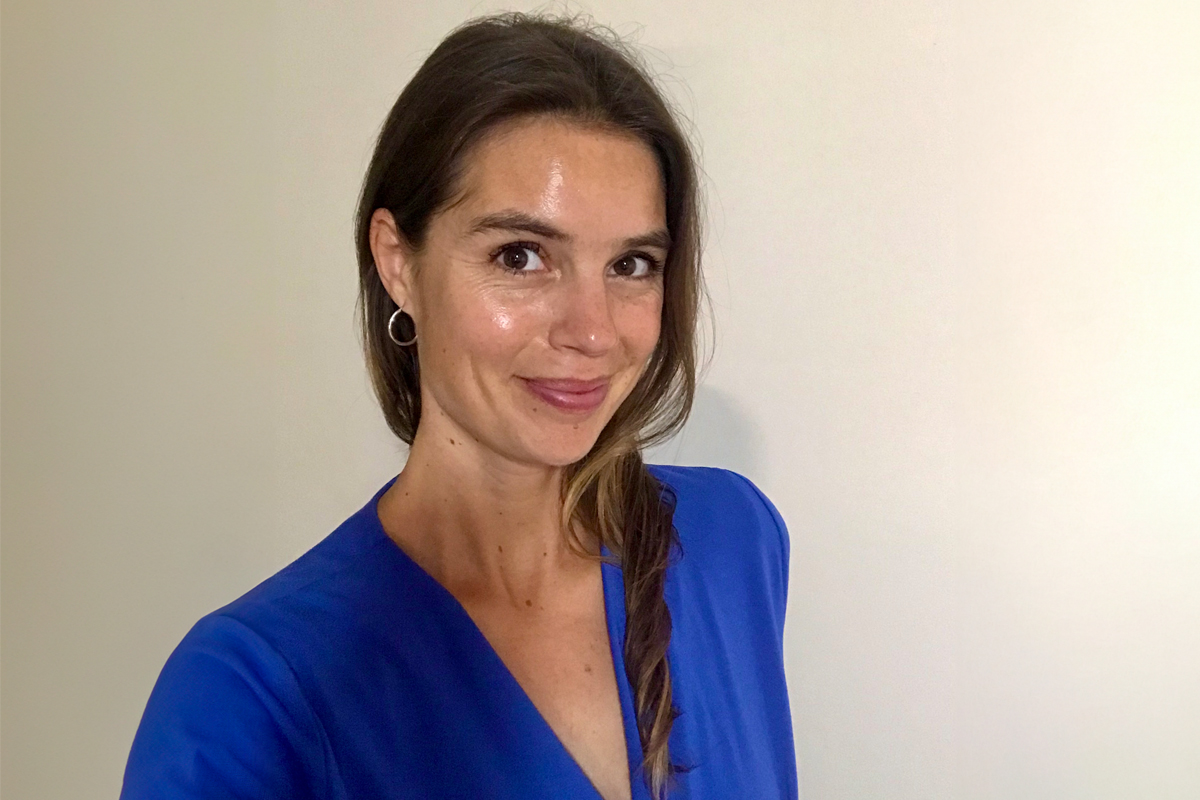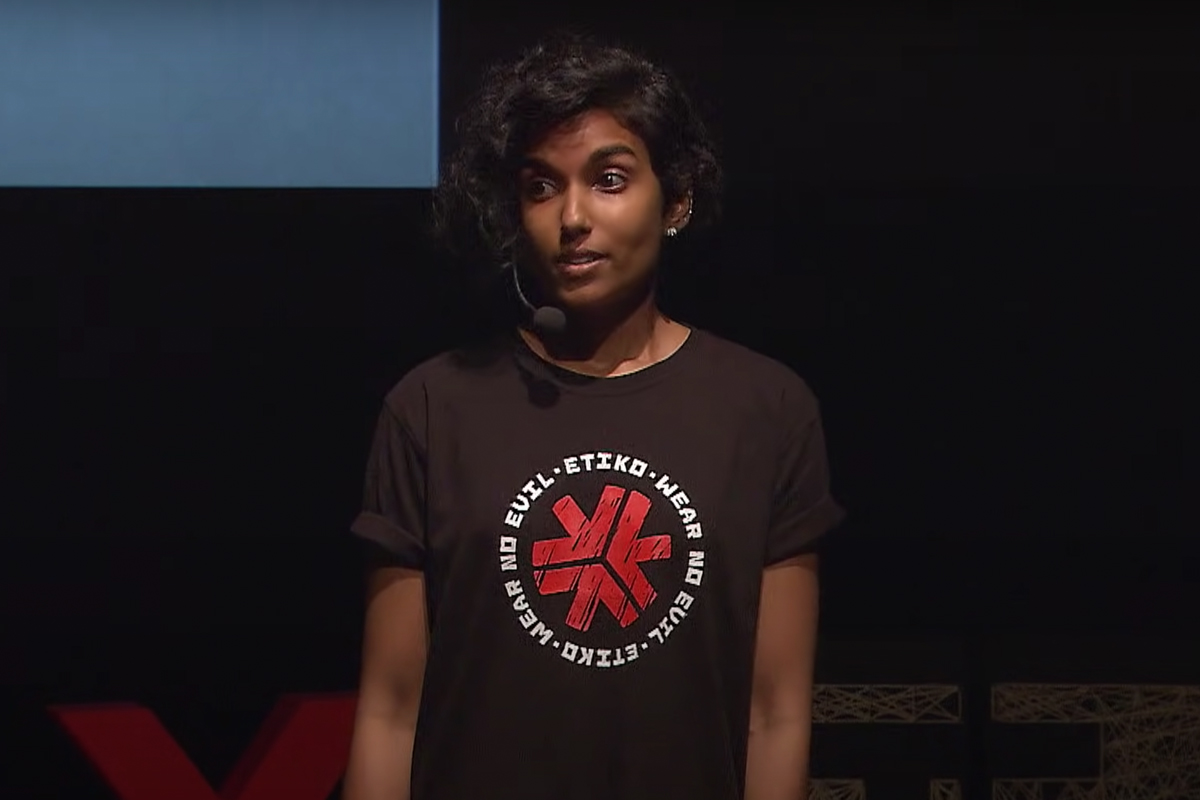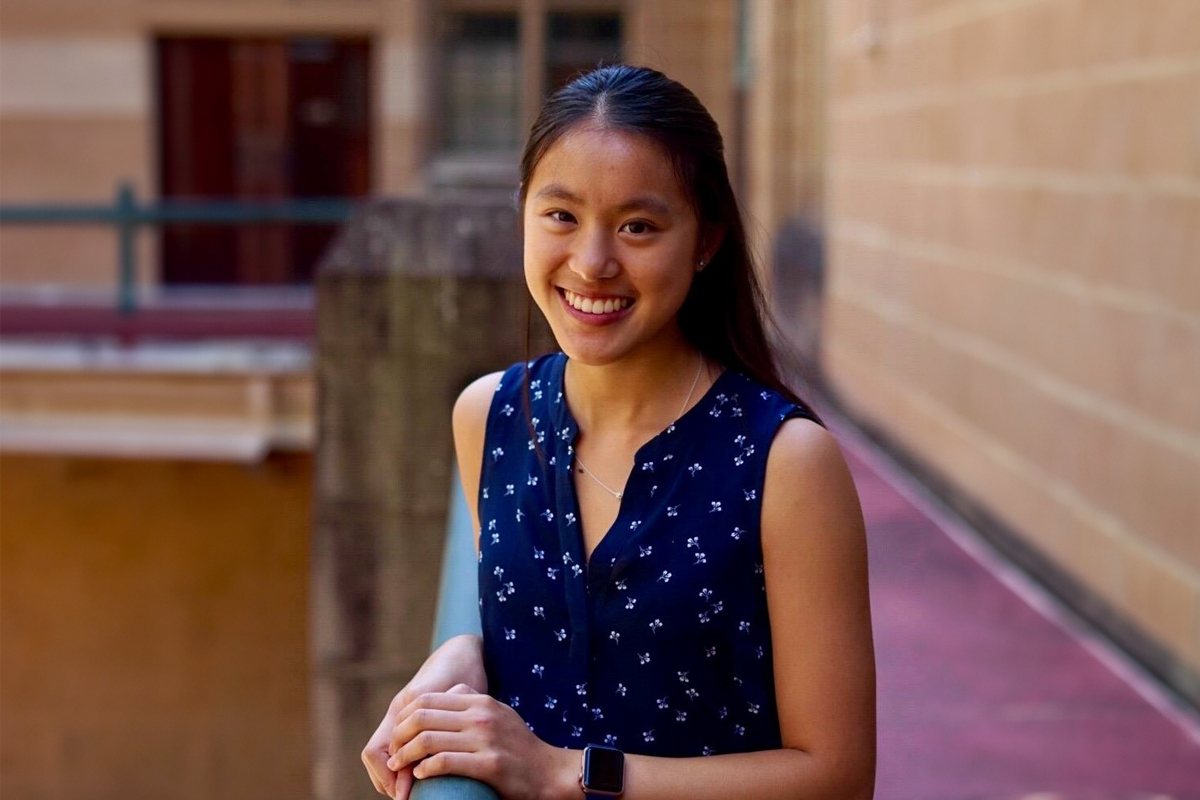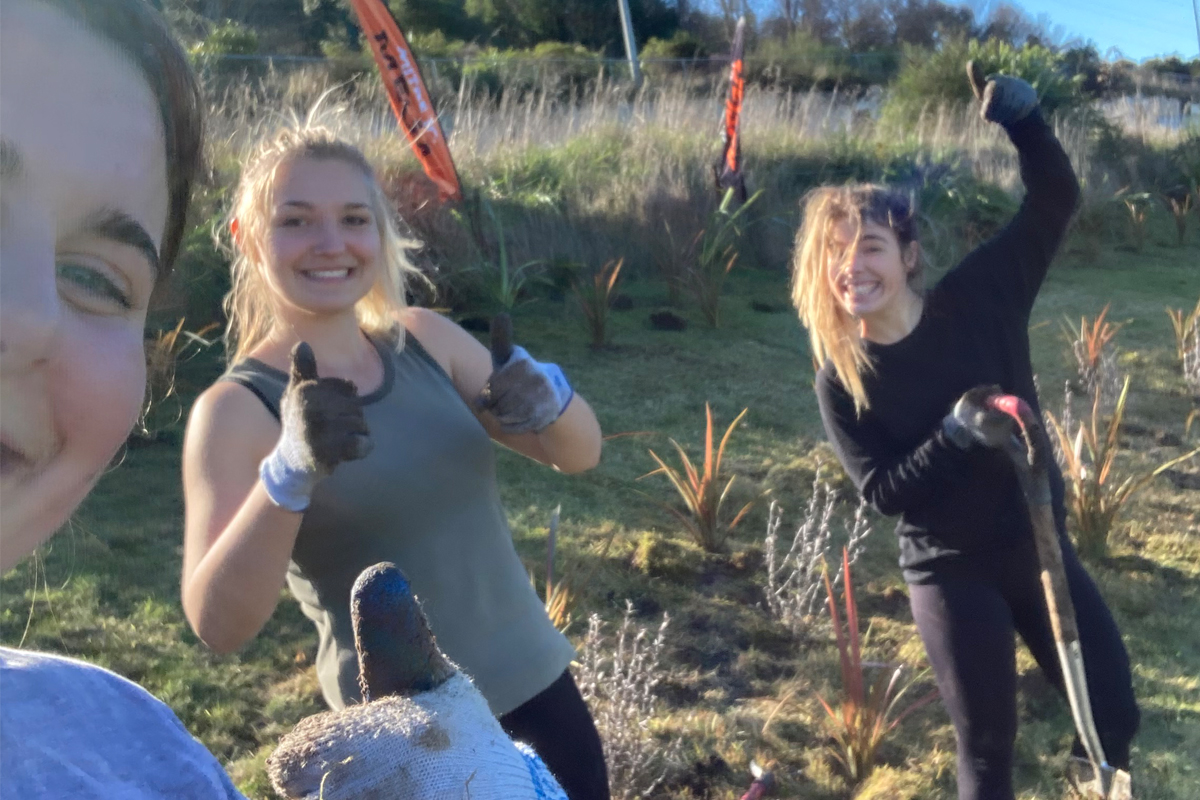Sustainability Champion – Student category
Studies and internship
I am currently studying a Master of Environment at the University of Melbourne (UoM) and previously completed a Bachelor of Environmental Science (Wildlife and Conservation Biology). In semester two 2021 I undertook an internship subject with the University’s Sustainability Team, where I completed over 120 placement hours. During my internship I composed web copy to promote biodiversity within the team’s website. I communicated key highlights of the University’s Biodiversity Baseline Data Project and information about how students and staff could get involved. I also successfully developed a business case for UniBioQuest, a citizen science competition, from which I was granted a casual contract to coordinate after my internship.
Applied research to inform my profession
Through my current employment at UoM as a Biodiversity Engagement Officer I coordinate BioBlitz programs, primarily UniBioQuest. UniBioQuest is a citizen science BioBlitz competition where participants are encouraged to collect and identify species using a mobile phone app. Participants take photos, videos and recordings of biodiversity they find and submit to the app. Each year universities around the world compete against one another during April and August. In 2022, during my first year coordinating the program, I delivered six events during UniBioQuest rounds and developed compelling promotional material to advertise the competition to staff and students at the University. I also collaborated with subject coordinators within the faculty of science to promote the initiative to their students. As a result of my efforts, the program attracted over 70 participants who contributed 1,400 sightings of biodiversity. Following UniBioQuest, I decided to promote and organise events for City Nature Challenge 2023. City Nature Challenge is an international BioBlitz that brings awareness to urban biodiversity. Each year cities across the world compete to collect as many sightings (photos, recordings) of plants and animals using the iNaturalist mobile phone app. For the 2023 event I developed two events:
- Bird and insects BioBlitz located on-campus, led by a PhD student studying the benefits of urban streetscape gardening for insects and birds. The student led the BioBlitz and assisted with species identification while communicating the importance of bird and insect diversity in urban spaces.
- Mini-lecture series featuring presentations from two academics at the University and myself. I presented my masters research project on BioBlitzes which communicated the power of citizen science for biodiversity research. The academics presented on why we should value nature (ecosystem services) and how community action can enhance biodiversity in our cities.
These events provided attendees with a holistic understanding of urban biodiversity and its importance. Events such as these are vital for increasing urban residents’ connections with nature.
The Biodiversity data collected during BioBlitzes such as UniBioQuest and City Nature Challenge, feed into online biodiversity atlases and is made publicly available for anyone to use. Many institutions (including UoM) are interested in using biodiversity data from BioBlitzes and online atlases to monitor biodiversity, however a framework for this is largely unknown. In 2022 while coordinating UniBioQuest rounds, I opted to embark on a research project to attempt to fill this knowledge gap. My masters research project evaluated the contribution of biodiversity data from BioBlitzes to local biodiversity knowledge, using data from BioBlitz events within eastern Melbourne. The research project spanned two semesters and my thesis was submitted in early June 2023. I have presented my research twice, at a conference I co-chaired and at the City Nature Challenge event I organised. I recently received a High Distinction for my thesis and am looking forward to publishing a paper and webinar communicating my findings.
Volunteering that advocates for biodiversity
While working and studying I have actively volunteered and campaigned for urban biodiversity. From mid-2022 to February 2023 I co-chaired the Victorian Biodiversity Conference organising committee, without any prior experience volunteering in a conference committee and with a relatively new committee. I coordinated a team of 20 volunteer committee members to develop a 3-day conference that showcased leading ecological and biodiversity conservation research projects and management programs within Victoria. Each year tickets to the conference are maintained at an affordable price through the help of sponsors. This enables students and early career researchers to attend and present their research. The committee and I contacted various Victorian organisations and local governments for sponsorship for the conference and generated over $30,000 in sponsorship money, which allowed us to continue to keep tickets prices affordable (in-person tickets: $64 for non-students, $32 for students). I promoted ticket sales widely using my personal social media account and networks from my studies, employment, and volunteering. I regularly promoted tickets to my research group and faculties and clubs within the University to circulate on mailing lists and newsletters. As a result of my efforts and those of the committee we sold over 600 tickets and sold out of our workshop and in-person conference tickets.
The 2023 conference was the first in-person conference since the pandemic and I saw this as an opportunity to make it the most sustainable. I regularly communicated with caterers, hired reusable crockery and developed social media posts to promote sustainability at the event. Through my actions and those of committee members, we were able to serve vegetarian and vegan catering in recyclable (foil) and reusable packaging and food waste was collected and composted on site at the University’s Burnley campus. Attendees were encouraged to use active or public transport and avoid printing out conference material.
Since April 2022, I have also been part of the Urban Bushland Initiative (UBI) committee and organised local planting days in Melbourne’s north-western suburbs to create habitat for urban biodiversity. In July 2022 the committee coordinated a large planting day event, which I developed promotional material for and advertised through my networks. The event attracted over 100 attendees who planted 3000 native trees and understorey shrubs at a local park. Following the event, I met a PhD student through my employment at UoM who was developing wildlife hollows out of mycelium (fungal threads), a naturally biodegradable material. I collaborated with the PhD student and local council to develop a wildlife hollow building workshop for community members to attend. This involved delegating tasks, keeping minutes and developing promotional material. The workshop was a success and several wildlife hollows were constructed. I have since assisted the committee in coordinating a wildlife hollow installation event with local council and another plantings event. During both events a further 1,400 trees were planted for local wildlife.
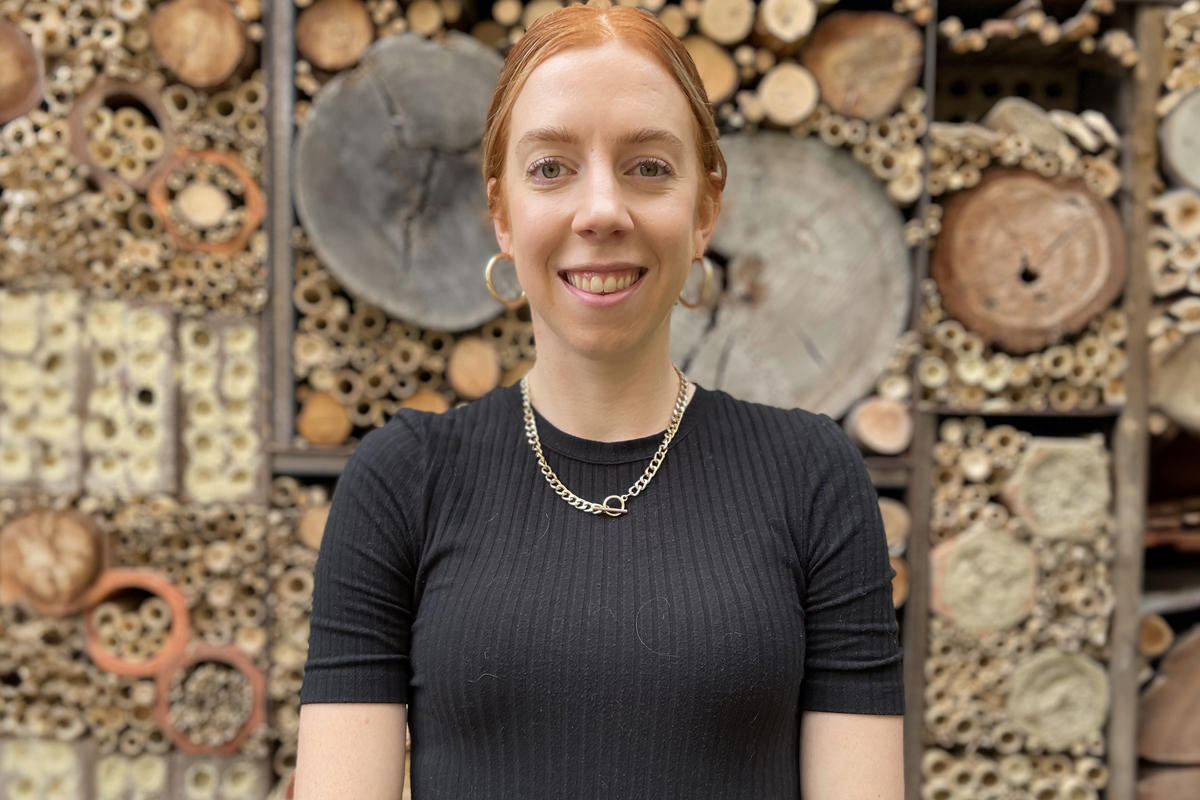
Impact and benefits
Fostering community’s connections with nature
Through my employment and volunteering, I have continuously created opportunities for urban residents to connect with nature. Since July last year, I have supported the development of three planting events and coordinated a wildlife hollow building event with Urban Bushland Initiative (UBI). Across the four events, over 200 people have attended and positively contributed to the conservation of urban biodiversity. Over 4,400 native plants have been planted and several wildlife hollows constructed as a result of the hours myself and the UBI committee volunteered to campaign for nature. During my time at the University of Melbourne (UoM) I have developed and coordinated 10 citizen science events where attendees have gained knowledge about urban species and how they can contribute important biodiversity data. Over 80 people have attended my events. During these events I have fostered attendee’s connections with nature through activities and meaningful discussions on urban biodiversity. The UniBioQuest program overall has reached 81 students and staff at the University, building their knowledge and awareness of on-campus species. These efforts have heightened people’s connection with nature which in turn facilitates positive environmental behaviours and benefits to wellbeing.
Contributing to citizen science research
From coordinating UniBioQuest and City Nature Challenge programs, over 1,500 species occurrence records have been contributed to online biodiversity atlases. These records feed into the Atlas of Living Australia (ALA) and Global Biodiversity Information Facility (GBIF). Both ALA and GBIF are open-source biodiversity atlases, enabling students, researchers and land managers to access vital species data for free. Data from both atlases are often incorporated in biodiversity research to inform species distributions, invasive species surveillance and changes in community diversity. As a regular user of citizen science apps such as iNaturalist and QuestaGame I have contributed over 50 records of biodiversity however, by coordinating events and promoting citizen science programs, I have harnessed the collective power of many individuals and amplified the potential contributions to conservation research.
My research has also provided insights into the applications of citizen science data for biodiversity conservation. My research identified that BioBlitzes are effective at surveying traditionally neglected taxa such as plants, insects and fungi. However, within urban landscapes participants generally prefer to survey large parks and often ignore important biodiverse greenspaces such as residential gardens, golf courses and cemeteries. These findings are incredibly useful for understanding the type of biodiversity data contributed during BioBlitzes and how BioBlitzes can complement current monitoring programs. As funding for biodiversity monitoring programs is often insufficient, citizen science initiatives such as BioBlitzes provide much needed biodiversity data at a low cost. My findings are therefore invaluable for many local and state governments, who monitor biodiversity across broad geographical areas and currently use citizen science to do so. My research findings will also inform biodiversity monitoring at the UoM. Additionally, my project provides a foundation for further studies, as BioBlitzes and their application in biodiversity monitoring is an active and emerging research field.
Promoting current biodiversity research
Through co-chairing and coordinating Victorian Biodiversity Conference, I have promoted biodiversity conservation research and built further awareness of the current global biodiversity crisis. At the 3-day conference 2 workshops, 4 plenary presentations, 2 panel discussions and 83 abstract presentations were delivered to over 600 attendees, which comprised of academics, local and state government officers, NGOs, consultants, community groups and students. Presentations and discussions informed the audience on the latest Victorian conservation research and following the conference a networking event was organised for attendees to connect over presented conference material. Conference and professional events, such as Victorian Biodiversity Conference are vital for fostering collaborative cross-institutional relationships and amplifying the reach of biodiversity programs and research.
Supporting the professional development of students and early career researchers (ECRs)
Additionally, from championing sponsorship and ticket sales, I have ensured the Victorian Biodiversity Conference committee is well placed financially for the 2024 conference. Approximately $24,000 has been carried over for funding of the next conference, which I will continue to volunteer my time to organise. This funding will ensure ticket prices continue to remain affordable, which is especially important for students and ECRs. Multi-day conference tickets are often hundreds of dollars and presenters are required to purchase tickets to showcase their research. Expensive conference tickets reduces the number of conferences post-graduate students and ECRs can attend to present their research. For undergraduate students, conferences provide opportunities to learn about current research fields and connect with potential research supervisors or prospective employers. Maintaining affordable ticket prices enables under-graduate students (who are often low income earners) to attend and take part in professional events. Through my efforts and those made by the committee, we delivered an affordable conference that was financially accessible for everyone.
Leadership and engagement
Strategic use of networks to increase reach, engagement and impact
I am a strong advocate for collective action and continuously make use of my networks to increase reach, engagement and impact. To gain sponsorship and increase ticket sales for Victorian Biodiversity Conference I approached many of my networks including UoM research groups and student clubs, environmental based businesses and community groups I had previously volunteered in. For those unable to commit funding for the conference, I encouraged them to share promotional material I had developed within their own networks. Similarly, for Urban Bushland Initiative (UBI) planting events, UniBioQuest and City Nature Challenge, I approached relevant subject coordinators, research groups and student clubs that I had previously connected with to promote my events and programs in their newsletters and subject dashboards. My efforts have increased the reach and engagement of these events and programs, while expanding the number of opportunities for people to engage with and contribute to the conservation of nature.
Sustainable focus
While the events I have coordinated have primarily focused on biodiversity, I have made significant efforts to ensure these have been sustainably run and sustainable behaviours have been communicated to event attendees. Biodiversity loss is a symptom of the unsustainable use of resources and so it is imperative that biodiversity conservation and environmental sustainability be communicated alongside one another. When coordinating events, I have ensured catering is strictly vegan or vegetarian and reusable or recycling food packaging is used. Attendees have also been encouraged to bring reusable coffee cups for UniBioQuest meet and greet events and use active or public transport to travel to and from events.
Executing and communicating applied research
Within my research and career I am placed in a unique position, in that I am a researcher and practitioner. Ensuring my research is both applicable and relevant to industry and government is a therefore a high priority for me. Prior to undertaking my research project, I aspired to engage in a project that would inform my citizen science and BioBlitz programs at the University of Melbourne (UoM). Through my research project I have learnt about bioblitz event design and how to maximise engagement and biodiversity data collection during events. I have applied these improvements to my own events and programs. Examples include incorporating equipment (e.g. field guides, macro lenses) and experts into UniBioQuest and City Nature Challenge events.
I have also consistently engaged in opportunities to communicate my research findings to Bioblitz organisers. Earlier this year I presented my research at Victorian Biodiversity Conference and during City Nature Challenge. I have also relayed key highlights of my research project to local governments that organise BioBlitzes through one-on-one discussions. During September (Biodiversity month) I plan to present my findings to Greater Melbourne councils through an event organised by myself and my research supervisors. This goes well beyond the requirements of my research subject within my Masters.
Wider societal impact
Providing opportunities for people to connect with and contribute to the conservation of biodiversity in urban landscapes has guided and motivated my actions and career. The events I have coordinated have built attendee’s awareness of their local biodiversity and provided them with tangible actions to conserve nature (e.g. planting habitat, contributing species records for biodiversity research). These events have provided attendees with opportunities to connect with biodiversity which is important for promoting wellbeing and sense of place. Moreover, connecting with nature can incite further involvement in citizen science, biodiversity friendly behaviours and involvement in other nature-based volunteering. My actions have therefore contributed to building healthy communities that activity care for nature.
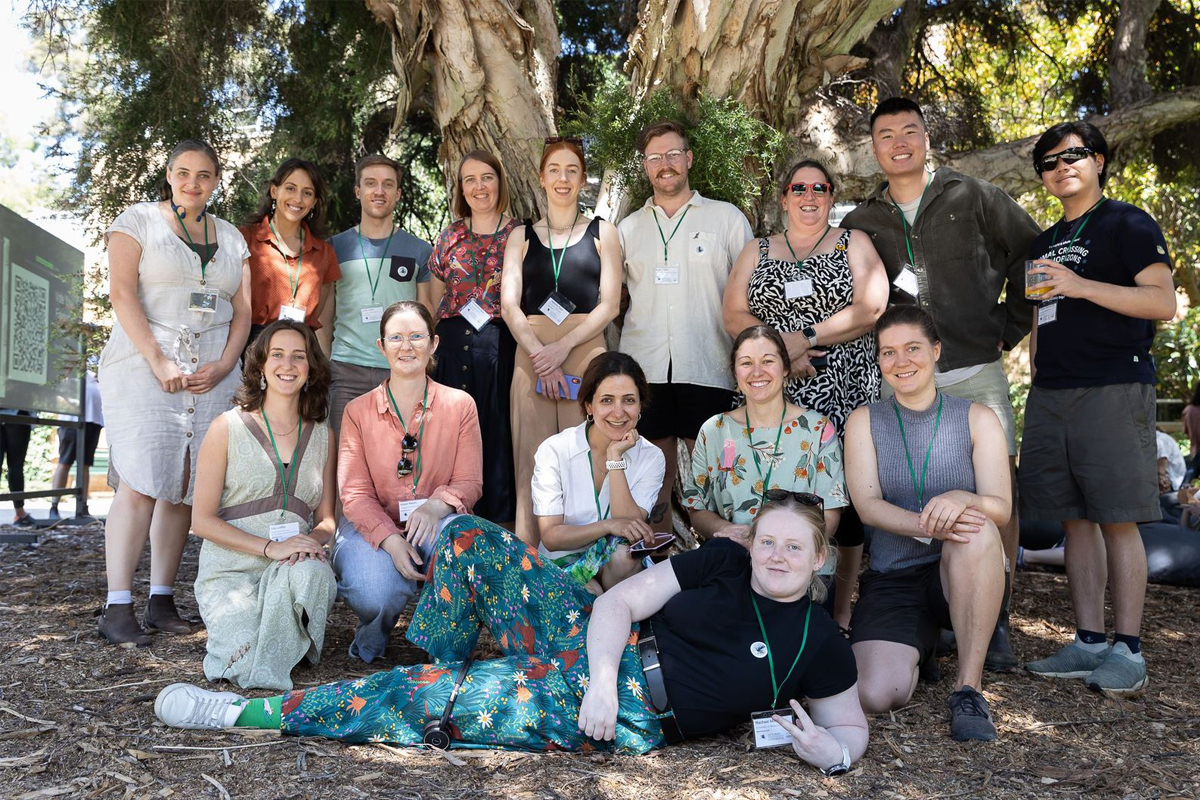
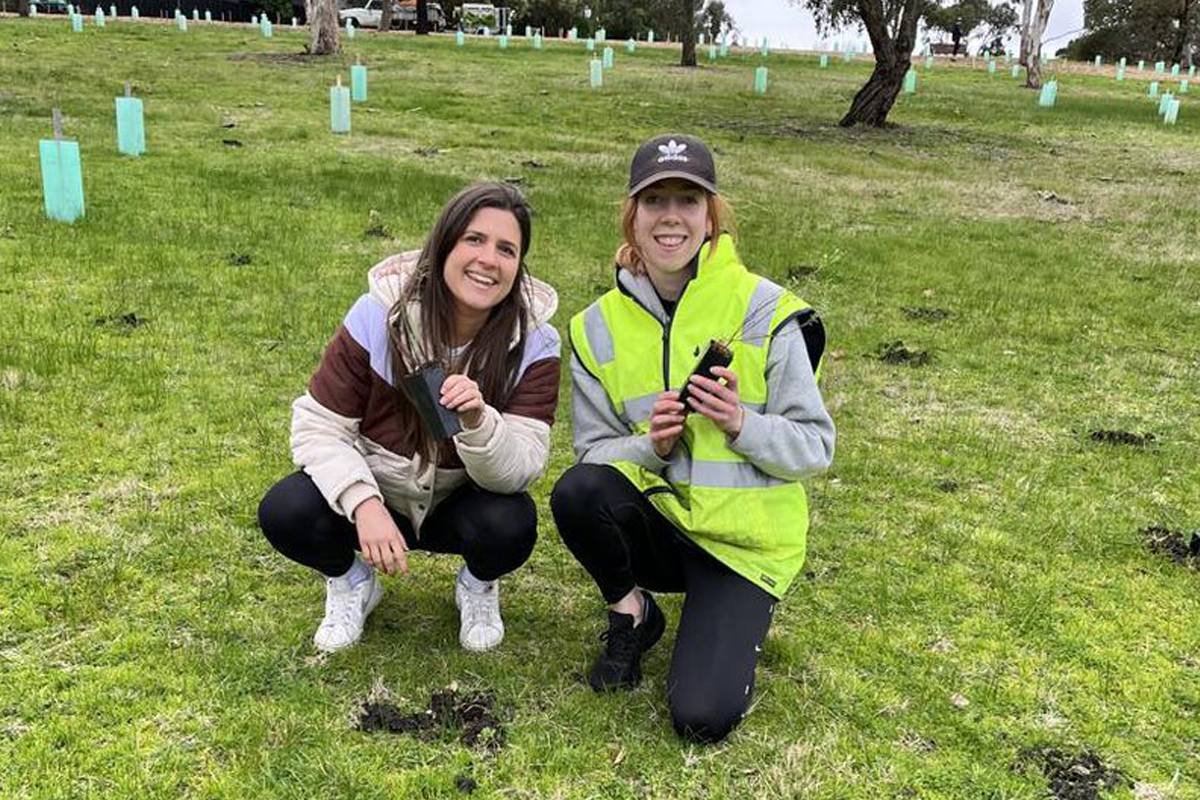
Related finalists
Sustainability Champion – Student/Winners
Sustainability Champion – Student/Winners
Sustainability Champion – Student/Winners
Sustainability Champion – Student/Winners
Sustainability Champion – Student
Sustainability Champion – Student
Sustainability Champion – Student/Winners
Sustainability Champion – Student/Winners
Sustainability Champion – Student
Sustainability Champion – Student
Past Winners
Benefitting Society/Winners
Benefitting Society/Winners
Diversity, Equity & Inclusion in Sustainability/Winners
Diversity, Equity & Inclusion in Sustainability/Winners
Climate Action/Winners
Climate Action/Winners
Sustainability Institution of the Year/Winners
Sustainability Institution of the Year/Winners
Creating Impact/Winners
Creating Impact/Winners
Creating Impact/Winners
Creating Impact/Winners
Studies and internship
I am currently studying a Master of Environment at the University of Melbourne (UoM) and previously completed a Bachelor of Environmental Science (Wildlife and Conservation Biology). In semester two 2021 I undertook an internship subject with the University’s Sustainability Team, where I completed over 120 placement hours. During my internship I composed web copy to promote biodiversity within the team’s website. I communicated key highlights of the University’s Biodiversity Baseline Data Project and information about how students and staff could get involved. I also successfully developed a business case for UniBioQuest, a citizen science competition, from which I was granted a casual contract to coordinate after my internship.
Applied research to inform my profession
Through my current employment at UoM as a Biodiversity Engagement Officer I coordinate BioBlitz programs, primarily UniBioQuest. UniBioQuest is a citizen science BioBlitz competition where participants are encouraged to collect and identify species using a mobile phone app. Participants take photos, videos and recordings of biodiversity they find and submit to the app. Each year universities around the world compete against one another during April and August. In 2022, during my first year coordinating the program, I delivered six events during UniBioQuest rounds and developed compelling promotional material to advertise the competition to staff and students at the University. I also collaborated with subject coordinators within the faculty of science to promote the initiative to their students. As a result of my efforts, the program attracted over 70 participants who contributed 1,400 sightings of biodiversity. Following UniBioQuest, I decided to promote and organise events for City Nature Challenge 2023. City Nature Challenge is an international BioBlitz that brings awareness to urban biodiversity. Each year cities across the world compete to collect as many sightings (photos, recordings) of plants and animals using the iNaturalist mobile phone app. For the 2023 event I developed two events:
- Bird and insects BioBlitz located on-campus, led by a PhD student studying the benefits of urban streetscape gardening for insects and birds. The student led the BioBlitz and assisted with species identification while communicating the importance of bird and insect diversity in urban spaces.
- Mini-lecture series featuring presentations from two academics at the University and myself. I presented my masters research project on BioBlitzes which communicated the power of citizen science for biodiversity research. The academics presented on why we should value nature (ecosystem services) and how community action can enhance biodiversity in our cities.
These events provided attendees with a holistic understanding of urban biodiversity and its importance. Events such as these are vital for increasing urban residents’ connections with nature.
The Biodiversity data collected during BioBlitzes such as UniBioQuest and City Nature Challenge, feed into online biodiversity atlases and is made publicly available for anyone to use. Many institutions (including UoM) are interested in using biodiversity data from BioBlitzes and online atlases to monitor biodiversity, however a framework for this is largely unknown. In 2022 while coordinating UniBioQuest rounds, I opted to embark on a research project to attempt to fill this knowledge gap. My masters research project evaluated the contribution of biodiversity data from BioBlitzes to local biodiversity knowledge, using data from BioBlitz events within eastern Melbourne. The research project spanned two semesters and my thesis was submitted in early June 2023. I have presented my research twice, at a conference I co-chaired and at the City Nature Challenge event I organised. I recently received a High Distinction for my thesis and am looking forward to publishing a paper and webinar communicating my findings.
Volunteering that advocates for biodiversity
While working and studying I have actively volunteered and campaigned for urban biodiversity. From mid-2022 to February 2023 I co-chaired the Victorian Biodiversity Conference organising committee, without any prior experience volunteering in a conference committee and with a relatively new committee. I coordinated a team of 20 volunteer committee members to develop a 3-day conference that showcased leading ecological and biodiversity conservation research projects and management programs within Victoria. Each year tickets to the conference are maintained at an affordable price through the help of sponsors. This enables students and early career researchers to attend and present their research. The committee and I contacted various Victorian organisations and local governments for sponsorship for the conference and generated over $30,000 in sponsorship money, which allowed us to continue to keep tickets prices affordable (in-person tickets: $64 for non-students, $32 for students). I promoted ticket sales widely using my personal social media account and networks from my studies, employment, and volunteering. I regularly promoted tickets to my research group and faculties and clubs within the University to circulate on mailing lists and newsletters. As a result of my efforts and those of the committee we sold over 600 tickets and sold out of our workshop and in-person conference tickets.
The 2023 conference was the first in-person conference since the pandemic and I saw this as an opportunity to make it the most sustainable. I regularly communicated with caterers, hired reusable crockery and developed social media posts to promote sustainability at the event. Through my actions and those of committee members, we were able to serve vegetarian and vegan catering in recyclable (foil) and reusable packaging and food waste was collected and composted on site at the University’s Burnley campus. Attendees were encouraged to use active or public transport and avoid printing out conference material.
Since April 2022, I have also been part of the Urban Bushland Initiative (UBI) committee and organised local planting days in Melbourne’s north-western suburbs to create habitat for urban biodiversity. In July 2022 the committee coordinated a large planting day event, which I developed promotional material for and advertised through my networks. The event attracted over 100 attendees who planted 3000 native trees and understorey shrubs at a local park. Following the event, I met a PhD student through my employment at UoM who was developing wildlife hollows out of mycelium (fungal threads), a naturally biodegradable material. I collaborated with the PhD student and local council to develop a wildlife hollow building workshop for community members to attend. This involved delegating tasks, keeping minutes and developing promotional material. The workshop was a success and several wildlife hollows were constructed. I have since assisted the committee in coordinating a wildlife hollow installation event with local council and another plantings event. During both events a further 1,400 trees were planted for local wildlife.

Impact and benefits
Fostering community’s connections with nature
Through my employment and volunteering, I have continuously created opportunities for urban residents to connect with nature. Since July last year, I have supported the development of three planting events and coordinated a wildlife hollow building event with Urban Bushland Initiative (UBI). Across the four events, over 200 people have attended and positively contributed to the conservation of urban biodiversity. Over 4,400 native plants have been planted and several wildlife hollows constructed as a result of the hours myself and the UBI committee volunteered to campaign for nature. During my time at the University of Melbourne (UoM) I have developed and coordinated 10 citizen science events where attendees have gained knowledge about urban species and how they can contribute important biodiversity data. Over 80 people have attended my events. During these events I have fostered attendee’s connections with nature through activities and meaningful discussions on urban biodiversity. The UniBioQuest program overall has reached 81 students and staff at the University, building their knowledge and awareness of on-campus species. These efforts have heightened people’s connection with nature which in turn facilitates positive environmental behaviours and benefits to wellbeing.
Contributing to citizen science research
From coordinating UniBioQuest and City Nature Challenge programs, over 1,500 species occurrence records have been contributed to online biodiversity atlases. These records feed into the Atlas of Living Australia (ALA) and Global Biodiversity Information Facility (GBIF). Both ALA and GBIF are open-source biodiversity atlases, enabling students, researchers and land managers to access vital species data for free. Data from both atlases are often incorporated in biodiversity research to inform species distributions, invasive species surveillance and changes in community diversity. As a regular user of citizen science apps such as iNaturalist and QuestaGame I have contributed over 50 records of biodiversity however, by coordinating events and promoting citizen science programs, I have harnessed the collective power of many individuals and amplified the potential contributions to conservation research.
My research has also provided insights into the applications of citizen science data for biodiversity conservation. My research identified that BioBlitzes are effective at surveying traditionally neglected taxa such as plants, insects and fungi. However, within urban landscapes participants generally prefer to survey large parks and often ignore important biodiverse greenspaces such as residential gardens, golf courses and cemeteries. These findings are incredibly useful for understanding the type of biodiversity data contributed during BioBlitzes and how BioBlitzes can complement current monitoring programs. As funding for biodiversity monitoring programs is often insufficient, citizen science initiatives such as BioBlitzes provide much needed biodiversity data at a low cost. My findings are therefore invaluable for many local and state governments, who monitor biodiversity across broad geographical areas and currently use citizen science to do so. My research findings will also inform biodiversity monitoring at the UoM. Additionally, my project provides a foundation for further studies, as BioBlitzes and their application in biodiversity monitoring is an active and emerging research field.
Promoting current biodiversity research
Through co-chairing and coordinating Victorian Biodiversity Conference, I have promoted biodiversity conservation research and built further awareness of the current global biodiversity crisis. At the 3-day conference 2 workshops, 4 plenary presentations, 2 panel discussions and 83 abstract presentations were delivered to over 600 attendees, which comprised of academics, local and state government officers, NGOs, consultants, community groups and students. Presentations and discussions informed the audience on the latest Victorian conservation research and following the conference a networking event was organised for attendees to connect over presented conference material. Conference and professional events, such as Victorian Biodiversity Conference are vital for fostering collaborative cross-institutional relationships and amplifying the reach of biodiversity programs and research.
Supporting the professional development of students and early career researchers (ECRs)
Additionally, from championing sponsorship and ticket sales, I have ensured the Victorian Biodiversity Conference committee is well placed financially for the 2024 conference. Approximately $24,000 has been carried over for funding of the next conference, which I will continue to volunteer my time to organise. This funding will ensure ticket prices continue to remain affordable, which is especially important for students and ECRs. Multi-day conference tickets are often hundreds of dollars and presenters are required to purchase tickets to showcase their research. Expensive conference tickets reduces the number of conferences post-graduate students and ECRs can attend to present their research. For undergraduate students, conferences provide opportunities to learn about current research fields and connect with potential research supervisors or prospective employers. Maintaining affordable ticket prices enables under-graduate students (who are often low income earners) to attend and take part in professional events. Through my efforts and those made by the committee, we delivered an affordable conference that was financially accessible for everyone.
Leadership and engagement
Strategic use of networks to increase reach, engagement and impact
I am a strong advocate for collective action and continuously make use of my networks to increase reach, engagement and impact. To gain sponsorship and increase ticket sales for Victorian Biodiversity Conference I approached many of my networks including UoM research groups and student clubs, environmental based businesses and community groups I had previously volunteered in. For those unable to commit funding for the conference, I encouraged them to share promotional material I had developed within their own networks. Similarly, for Urban Bushland Initiative (UBI) planting events, UniBioQuest and City Nature Challenge, I approached relevant subject coordinators, research groups and student clubs that I had previously connected with to promote my events and programs in their newsletters and subject dashboards. My efforts have increased the reach and engagement of these events and programs, while expanding the number of opportunities for people to engage with and contribute to the conservation of nature.
Sustainable focus
While the events I have coordinated have primarily focused on biodiversity, I have made significant efforts to ensure these have been sustainably run and sustainable behaviours have been communicated to event attendees. Biodiversity loss is a symptom of the unsustainable use of resources and so it is imperative that biodiversity conservation and environmental sustainability be communicated alongside one another. When coordinating events, I have ensured catering is strictly vegan or vegetarian and reusable or recycling food packaging is used. Attendees have also been encouraged to bring reusable coffee cups for UniBioQuest meet and greet events and use active or public transport to travel to and from events.
Executing and communicating applied research
Within my research and career I am placed in a unique position, in that I am a researcher and practitioner. Ensuring my research is both applicable and relevant to industry and government is a therefore a high priority for me. Prior to undertaking my research project, I aspired to engage in a project that would inform my citizen science and BioBlitz programs at the University of Melbourne (UoM). Through my research project I have learnt about bioblitz event design and how to maximise engagement and biodiversity data collection during events. I have applied these improvements to my own events and programs. Examples include incorporating equipment (e.g. field guides, macro lenses) and experts into UniBioQuest and City Nature Challenge events.
I have also consistently engaged in opportunities to communicate my research findings to Bioblitz organisers. Earlier this year I presented my research at Victorian Biodiversity Conference and during City Nature Challenge. I have also relayed key highlights of my research project to local governments that organise BioBlitzes through one-on-one discussions. During September (Biodiversity month) I plan to present my findings to Greater Melbourne councils through an event organised by myself and my research supervisors. This goes well beyond the requirements of my research subject within my Masters.
Wider societal impact
Providing opportunities for people to connect with and contribute to the conservation of biodiversity in urban landscapes has guided and motivated my actions and career. The events I have coordinated have built attendee’s awareness of their local biodiversity and provided them with tangible actions to conserve nature (e.g. planting habitat, contributing species records for biodiversity research). These events have provided attendees with opportunities to connect with biodiversity which is important for promoting wellbeing and sense of place. Moreover, connecting with nature can incite further involvement in citizen science, biodiversity friendly behaviours and involvement in other nature-based volunteering. My actions have therefore contributed to building healthy communities that activity care for nature.


Related finalists
Sustainability Champion – Student
Sustainability Champion – Student
Sustainability Champion – Student/Winners
Sustainability Champion – Student/Winners
Sustainability Champion – Student
Sustainability Champion – Student
Other finalists
Climate Action
Climate Action
Sustainability Champion – Staff/Winners
Sustainability Champion – Staff/Winners
Student Engagement
Student Engagement

